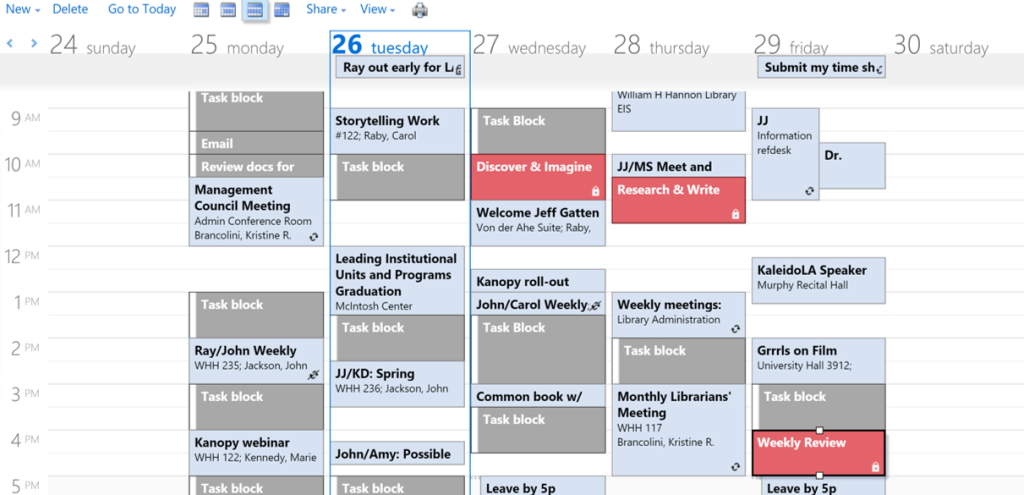I have long been a proponent of the GTD method for managing my to-dos, but recently I’ve been finding that it does very little to help me stay on top of my constantly growing project list and shrinking free time.
problem #1: contexts
The use of “contexts” has always helped me to prioritize what I ought to work on first: do what you can, when you can, and only if you have the right tools and resources on hand. But in my current position, I am always in the right context. I can work on almost any task regardless of where I am using my tablet or smartphone since so much of what I do happens via email, on social media, in a text file, or using web-based design tools. Prioritizing by context is no longer effective.
problem #2: calendaring
I have always been religious about my calendar. I never put anything on it unless it is date and time specific. Unfortunately, this leaves my time wide open for commandeering since anyone at MPOW can view my calendar and request a meeting. Granted, one of my main responsibilities as an Outreach & Communications Librarian is to make connections with people and the best way to do that is face-to-face, but I still have other projects that need attention. Spending all day in meetings only to bring solitary work home every night is just begging for burnout.
solution: task blocks
So for the next few weeks I’m trying something new. On Sundays while I’m doing my weekly review, I plan to block out times on my calendar to focus on specific, prioritized projects. I’m setting aside time each day to focus solely on email (so that I don’t have to worry about it at other times of the day) and leaving up to 20% of each day unscheduled for things that may come up unexpectedly. I’m also adding a three weekly “productivity and creative” sessions:
- Discover & Imaging: a time to think creatively about a problem or project (usually over coffee).
- Research & Writing: a time to focus on whatever research project I’m working on at the time.
- Weekly Roundup: a time to review all my email, tasks, and notes from the past week, reflect on what I’ve learned, and begin prioritizing projects for the next week.
From another Outlook user’s perspective, it looks like my calendar is completely booked. On the one hand, I’m worried this will make my colleagues less likely to request a meeting. On the other hand, I know that if someone really wants to request a meeting, they will contact me before trying to do so, and in most cases, I will be the one setting up the meeting so it shouldn’t be a problem.
Ultimately, I am responsible for my time. I need to ensure that my projects get the attention they deserve.
